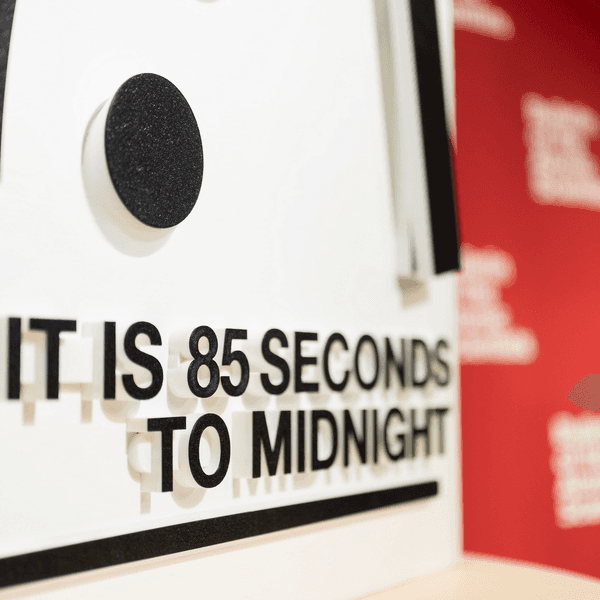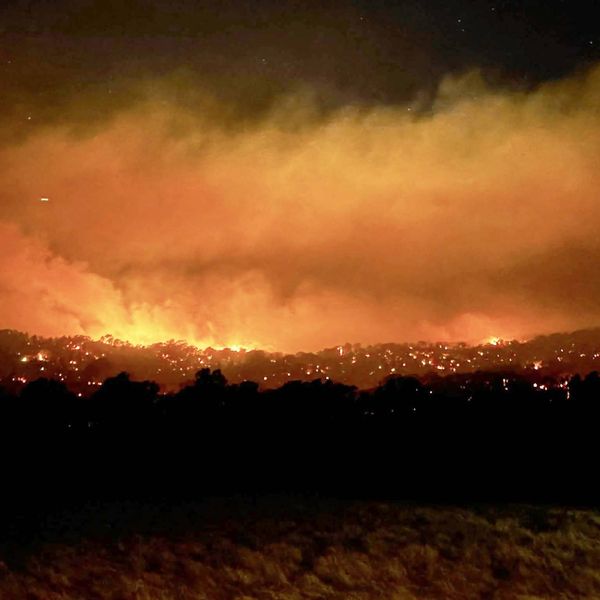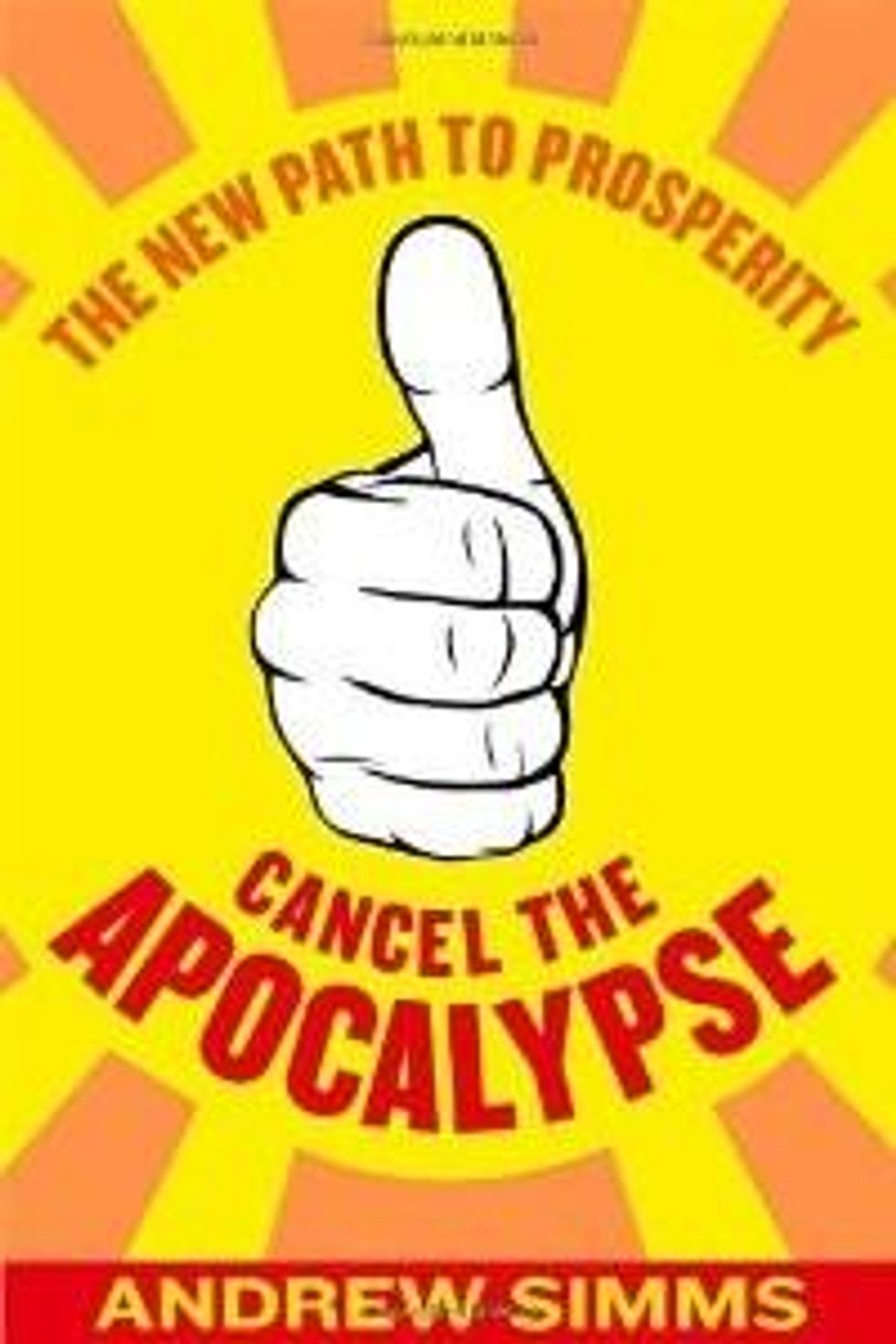After millennia of falsely predicting the apocalypse, humanity has become understandably flippant. There were so many threatened catastrophes in 2012, from rolling earthquakes to interstellar collisions and a misunderstanding of the Mayan calendar that the quips began to flow. "People are making apocalypse jokes like there's no tomorrow,' was a favourite.
But just because we've been wrong so many times before, does that mean we're safe forever? Or have we been lulled into a false sense of security, and do the timeframes involved disguise the scale of the risks posed to conditions for human civilisations?
Look back far enough and you'll see that very bad things do happen. The world has experienced five mass extinction events during which over 95% of marine species and 80% of four legged creatures died out.
The climate warmed during the gloriously named Paleocene-Eocene Thermal Maximum (PETM), driving one of Earth's more recent extinction events 55m years ago. Now we are living through a man-made mass extinction event.
The PETM was bad, but NASA climate scientist James Hansen notes that with global warming today, climate zones are moving about 10 times faster than they did during the PETM extinction. It's an indicator of the force and speed of the unintended consequences of our economic activity, and something which makes it impossible for many species to adapt. And left unaddressed that could be the case for humanity too.
Homo Sapiens may feel smugly secure in our abilities, but its worth remembering we've only been around for a humble 300,000 years or so. The dinosaurs lasted for about 165m years, and we seem to be trying hard not to outlive them.
Vast subsidies pour into the fossil fuel industries, and in the UK new tax breaks have encouraged investment at a 30-year high into North Sea oil and gas exploration and production.
That is in spite of the best science available suggesting that we can only afford to burn around a quarter or a fifth of proven reserves if we are to avoid potentially runaway global warming. And, instead of climate campaigners being applauded for their actions, they are being hounded with PS5 million law suits.
My new book, Cancel the Apocalypse, is about how we can face this challenge positively, without slipping into denial, despair or cynical profiteering.
"To be truly radical is to make hope possible rather than despair convincing." -Raymond Williams
With the right approaches we can all benefit from re-engineering our financial, food, transport and energy systems. We can re-imagine the shape of our high streets and the pattern of our working weeks to improve the quality of our lives and lessen our burden on the biosphere. But this can only happen if we let go of the tenacious economic dogma that has taken root in recent decades. Perversely, as evidence mounts of its failure to spread the benefits of enterprise, its lack of respect for its natural resource base, or even its ability to succeed on its own terms, the old ideas are clung to more tightly. Political familiarity misinterpreted as security.
Work harder and longer we're told, bow to the judgement of the markets, pretend that life-supporting ecosystems are a luxury whose protection and enhancement we cannot afford to prioritise.
In the grip of this epic perversity, perhaps the most exhilarating realisation is that countless other successful ways of organising our affairs already exist. The book is an exploration of these, that looks at the lessons of history, both positive and negative, for how to survive and thrive in times of adversity. It also scours the modern world highlighting working examples that refute the argument that the best we can hope for is to crudely stick the broken model of debt-fuelled, environmentally destructive and socially divisive overconsumption back together.
At the time of the second world war, economist JM Keynes came up with a plan for how to finance the war effort. It aimed to raise savings for the war effort and minimise costs for those least able to bear it. But even with the spectre of Nazism looming, his medicine was thought too strong. Opinion was not ready. Keynes lamented: "My discomfort comes from the fact, now made obvious, that the general public are not in favour of any plan."
The Economist newspaper, however, congratulated him for, if nothing else, revealing among the so-called "leaders of opinion," the state of their ignorance on the central economic problem of the war. This book is my take on where and how to begin to tackle current systemic environmental, economic and social challenges. It's the start of a plan. If having this conversation it only reveals the state of ignorance among our leaders, that will be a start.
I'd love to see other books that honestly and explicitly address how we make a global economic transition at scale, and within the timeframe that change is needed. Such plans have to be calibrated so that we can all live well within the tolerance levels of the biosphere.
It would be wrong to say that those who support the status quo have failed to notice there is a problem. They just react to it differently.
In 2011, The Wall Street Journal published a Guide to Investing in the Apocalypse. Listing a range of potential economic and environmental disasters it quite seriously observed that their occurrence, "will touch off panic and, in some cases, hysteria. As a result, these events will also contain the seeds of profit for investors who stay calm."
Of course, the alternative is that we could try to stop them. As the great cultural critic Raymond Williams once said, "To be truly radical is to make hope possible rather than despair convincing."




